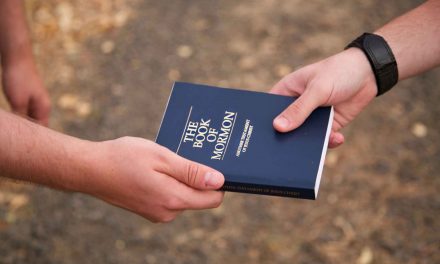BYU (Brigham Young University) is operated by The Church of Jesus Christ of Latter-day Saints, often mistakenly called the “Mormon Church.” As part of their undergraduate coursework, BYU students take multiple semesters of spiritually uplifting, stimulating religion classes.
In this series (see below), students enrolled in scripture study classes have shared their thoughts, insights, and reflections on the Book of Mormon in the form of letters to someone they know. We invite you to take a look at their epiphanies and discoveries as they delve into the scriptures.
In publishing these, we fulfill their desire to speak to all of us of the relevance, power and beauty of the Book of Mormon, a second witness of Jesus Christ and complement to the Bible. The Book of Mormon includes the religious history of a group of Israelites who settled in ancient America. (The names they use are those of prophets who taught the Book of Mormon peoples to look forward to the coming of Christ—Nephi, Lehi, Alma, Helaman, and other unfamiliar names. We hope those names will become more familiar to you as you read their inspiring words and feel the relevance and divinity of their messages through these letters.)
Let us know if you’d like to receive your own digital copy of the Book of Mormon, and/or if these messages encourage and assist you spiritually as well.
Book of Mormon: Rise or Burn
I learned quite a few interesting things in Book of Mormon in the past week. We focused on 3 Nephi 6-10, which explains about the return of the Nephites to their pride and wickedness and the destruction of many Nephite cities as a result of their wickedness. It is disgusting to know how after all the blessings that the Nephites were given, all the times they were spared, they still returned to their wickedness, while the Lamanites became righteous. 3 Nephi 7:8 describes: “And thus six years had not passed away since the more part of the people had turned from their righteousness, like the dog to his vomit, or like the sow to her wallowing in the mire.” What we should ask ourselves about every lesson from the Book of Mormon is “so what?” Whenever we read these lessons from the Book of Mormon, we need to realize that what occurs during these events can be applied to our own lives. We need to understand the gospel principles that are taught, as they are meant for both us today and those who were living at the time. If we don’t obtain something out of what we are taught, then we are just wasting our time.
Another scary thing to note is the incredible destruction that occurred in 3 Nephi 8, which was mainly caused by volcanic eruptions. These eruptions caused lightning storms (the gases of volcanic ash can generate that electric force by collisions of molecules), earthquakes and fires. And they also caused the ash that caused the darkness to pervade the lands for 3 days. A fact that I researched is that with this volcanic ash, people would suffocate, be unable to see clearly, or be unable to light candles, as one of the gases commonly found in volcanic was sulfur dioxide, which would prevent flames from coming forth. This destruction is an example of what will happen at the Second Coming: fire and brimstone. When the destruction had ceased, the more wicked part of the people had been killed off. 3 Nephi 10:12 states: “And it was the more righteous part of the people who were saved, and it was they who received the prophets and stoned them not; and it was they who had not shed the blood of the saints, and they were spared.” What is important to take away from this lesson is that if you work hard to stay worthy, be a good person and keep the commandments, the Lord will bless you in the long run. I have no guarantees for the short run, but in the eternal perspective of things, the Lord will bless you if you choose to do what is right.
We all have a choice to follow the Lord and rise to glory, or follow Satan and burn, both internally and externally. It is our choice, regardless of how many trials or blessings we have had in our lives. We always need to keep this in mind.
Additional Resources:




Recent Comments